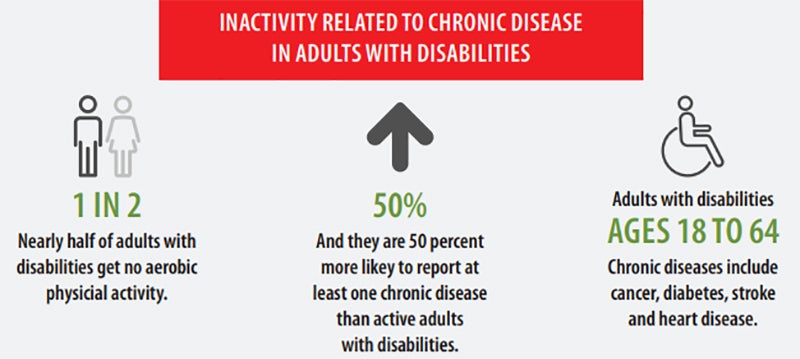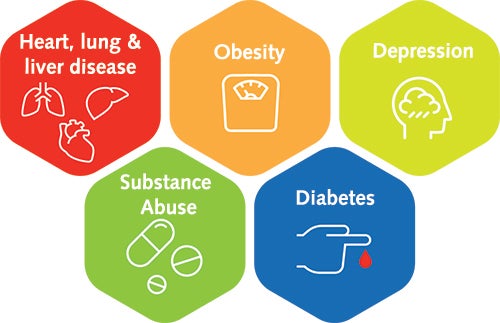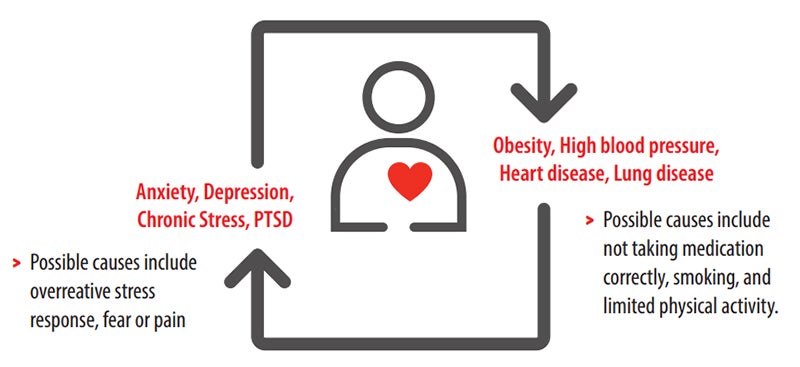Trauma & Chronic Disease

What is chronic disease?
Chronic disease is any condition that lasts for greater than one year and requires regular medical follow-up or limits activities of daily living. Examples include heart disease, hypertension or diabetes, but there are many more. Usually, people will have to manage the disease for many years or the rest of their life.
How does trauma affect chronic disease?

Trauma — physical, mental, and emotional — can affect you in different ways.
Trauma often leaves people less able to exercise than they were before the injury whether it is due to physical injury or the emotional or mental impact of their experiences. This inability to move easily may increase your risk of certain types of diabetes, high cholesterol, and depression in trauma survivors.
Trauma of all kinds, especially when experienced in childhood, may worsen mental health, and may make some people more likely to participate in high-risk or unhealthy behaviors (like heavy alcohol drinking and cigarette smoking). Together, this can increase a person’s chances of developing a chronic disease.
How can it be managed?
Supervised exercise programs tailored to the person’s individual needs and abilities have shown incredible benefit for patients after a physical traumatic injury.
These exercise programs usually include stretching, aerobic training, and strength training.
In patients with emotional trauma, psychological counseling to process and cope with the traumatic experiences are the mainstay of treatment. In both types of traumas, regular doctor’s visits, taking medications, reducing smoking/alcohol intake, and regular exercise will help manage the chronic disease. All these interventions have shown an increase in sleep, life satisfaction and mood and a decrease in chronic diseases and mortality.

Some resources for you to explore:
- WakeMed Rehabilitation and Physical Therapy
- Family Caregiver Alliance
- Tri-State Advocacy Project
- Substance Abuse and Mental Health Services Administration Resources 1-800-662-HELP (4357)
- Healing Transitions 919-838-9800
- NC Recovery 919-559-8690
- List of food pantries
- If you or someone you know is in crisis, Call the National Suicide Prevention Lifeline (Lifeline) at 1-800-273-TALK (8255) or text the Crisis Text Line (text HELLO to 741741).
Images and information adapted from the Centers for Disease Control and Prevention (CDC) and Center for Health Care Strategies